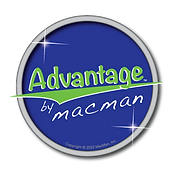
Flexible data management for home and business
What does the Synology OS offer?
The Synology DiskStation Manager (DSM) is the operating system that powers Synology NAS devices. It is a Linux-based operating system that provides a range of features and tools for managing and using your NAS.
Some of the features and capabilities of DSM include:
-
File storage and sharing: DSM provides a range of tools for storing, organizing, and sharing files on your NAS, including support for file sharing protocols like SMB, NFS, and FTP.
-
Backup and disaster recovery: DSM includes a range of tools for creating and managing backups of your data, including support for local and remote backup destinations, and the ability to schedule backups and set up alerts.
-
Virtualization: DSM includes support for running virtual machines on your NAS, allowing you to run multiple operating systems and applications on the same hardware.
-
Media streaming: DSM includes a range of tools for storing and streaming media files, including support for streaming to devices on the same network or over the internet.
-
Security: DSM includes a range of security features, including support for data encryption, user and group permissions, and secure protocols like HTTPS and SFTP.
-
Applications: DSM includes a range of applications that you can install to add additional features and functionality to your NAS, such as a mail server, web server, or surveillance camera management software.

Tier I: Synology DS420+
-
4-bay NAS
-
2 core CPU @ 2.9Ghz
-
2GB RAM standard (is upgradable to 6GB)
-
2x M.2 capability for faster read/write
-
2-1GbE LAN ports
This model is a perfect solution for a small business or a home office. Ideal for data sharing, video storage and photo
indexing. Included applications allow for easy access to photo libraries, audio libraries and video files. Also supports onsite and offsite backups, including Time Machine support.

Tier II: Synology DS1621+
-
6-bay NAS
-
AMD Ryzen 4 core CPU @ 2.2Ghz
-
4GB RAM standard (upgradable to 32GB)
-
2x M.2 capability for faster read/write
-
Scalability to 16-bay with expansion units
-
4-1GbE LAN ports with 10GbE expansion available
This model is ideal for small to large businesses that require additional performance for large amounts of data (4K videos, databases) and a large user footprint. Supports private mail server, video surveillance, as well as onsite and offsite backups, including Time Machine support.

Tier III: Synology DS3622xs+
-
12-bay NAS
-
Intel 6 core Xeon CPU @ 2.2Ghz
-
16GB RAM standard (upgradable to 48GB)
-
Scalability to 46-bay with expansion units
-
2-1GbE LAN ports and 2-10GbE LAN ports w/25GbE expansion available
This model is ideal for the best performance when accessing large amounts of data (8K movie files, large databases), as well as a large user footprint. Supports private mail server, video surveillance, as well as onsite and offsite backups, including Time Machine support.
Need help managing your Macs, network and storage solutions? Check out our Advantage program.
5 benefits or feature of a Synology NAS
Page Title
-
Data backup and recovery: A Synology NAS can be used to store and protect important data by creating multiple copies or backups. This can be useful in case of data loss due to hardware failure, human error, or other disasters.
-
File sharing: A Synology NAS can be used to share files with multiple users on a network, either through a local network or over the internet. This can be useful for businesses or teams that need to collaborate on files or access them remotely.
-
Media streaming: A Synology NAS can be used to store and stream media files, such as music, movies, and photos, to devices on the same network or over the internet. This can be useful for creating a central location for storing and accessing media files.
-
Virtualization: A Synology NAS can be used to run virtual machines, allowing you to run multiple operating systems on the same physical hardware. This can be useful for testing new software, running multiple applications simultaneously, or hosting websites.
-
Security: A Synology NAS comes with a variety of security features, such as data encryption, user and group permissions, and support for secure protocols like HTTPS and SFTP. This can help protect your data and prevent unauthorized access to your NAS.
Can I use Synology for email?
-
Yes, it is possible to use a Synology NAS to host email. Synology offers a package called "MailPlus" that allows you to set up and manage your own email server on your NAS. With MailPlus, you can create and manage email accounts, set up aliases and distribution lists, and access your email using webmail or a client like Microsoft Outlook.
-
Keep in mind that setting up and managing an email server can be complex and requires a certain level of technical expertise. If you are not familiar with email servers and server administration, it may be easier to use an email hosting service or a cloud-based email provider like Google Workspace or Microsoft 365. These providers can handle the technical details for you and offer a range of additional features and tools for managing your email and other communication needs.
-
MacMan offers setup, training and or support so you will be able to run your own mail server.



